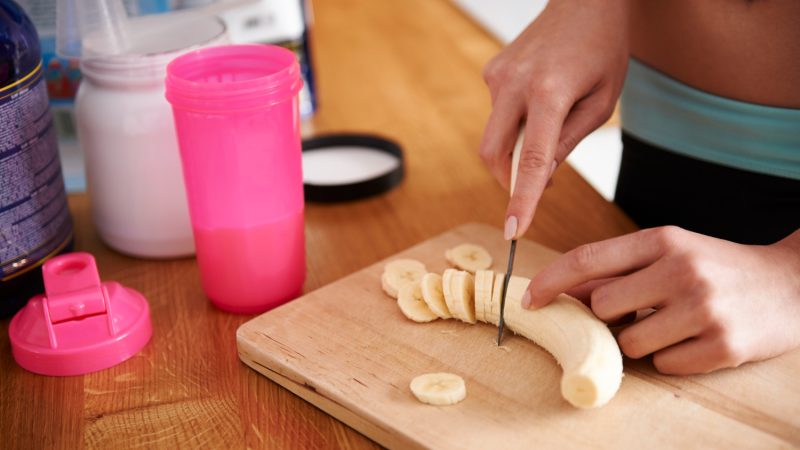Wound healing is a complex biological process that requires proper nutrition to support tissue repair, immune function, and overall recovery. The right diet can speed up healing, reduce inflammation, and minimize scarring. This article explores the essential nutrients for wound healing and provides delicious, easy-to-make recipes that support rapid recovery.
Essential Nutrients for Wound Healing
Protein
Protein is crucial for tissue repair and regeneration. It provides the building blocks (amino acids) necessary for collagen synthesis, immune response, and wound contraction.
Sources:
- Lean meats (chicken, turkey, beef)
- Fish (salmon, tuna)
- Eggs
- Dairy products
- Plant-based proteins (beans, lentils, tofu, quinoa)
Vitamin C
Vitamin C is essential for collagen production and acts as an antioxidant, reducing oxidative stress and inflammation.
Sources:
- Citrus fruits (oranges, lemons, grapefruits)
- Berries (strawberries, blueberries)
- Bell peppers
- Kiwi
- Leafy greens
Zinc
Zinc plays a vital role in cell growth, immune function, and inflammation control, making it crucial for wound healing.
Sources:
- Shellfish (oysters, crab)
- Meat (beef, pork)
- Nuts and seeds (pumpkin seeds, almonds)
- Whole grains (quinoa, brown rice)
Omega-3 Fatty Acids
Omega-3 fatty acids help reduce inflammation and promote faster healing.
Sources:
- Fatty fish (salmon, mackerel, sardines)
- Chia seeds
- Flaxseeds
- Walnuts
Iron
Iron is necessary for oxygen transport in the blood, which is vital for wound healing and tissue regeneration.
Sources:
- Red meat
- Dark leafy greens
- Legumes
- Fortified cereals
Hydration
Water is essential for cellular functions, nutrient transport, and waste removal, all of which are crucial for recovery.
Sources:
- Water
- Herbal teas
- Coconut water
- Fruits and vegetables with high water content
Wound Healing Recipes
Protein-Packed Smoothie
Ingredients:
- 1 cup Greek yogurt
- 1 banana
- 1 scoop protein powder
- 1/2 cup spinach
- 1/2 cup berries
- 1 tablespoon flaxseeds
- 1 cup almond milk
Instructions:
- Blend all ingredients until smooth.
- Serve immediately.
Omega-3 Salmon Salad
Ingredients:
- 1 grilled salmon fillet
- 2 cups mixed greens
- 1/2 avocado, sliced
- 1/4 cup walnuts
- 1 tablespoon flax seeds
- 1 tablespoon olive oil
- 1 tablespoon lemon juice
Instructions:
- Combine all ingredients in a bowl.
- Drizzle with olive oil and lemon juice.
- Toss and enjoy.
Zinc-Rich Lentil Soup
Ingredients:
- 1 cup lentils
- 1 diced carrot
- 1 diced onion
- 2 cloves garlic, minced
- 4 cups vegetable broth
- 1 teaspoon turmeric
- 1 teaspoon cumin
Salt and pepper to taste
Instructions:
- Sauté onions and garlic until fragrant.
- Add carrots, lentils, broth, and spices.
- Simmer for 25-30 minutes until the lentils are tender.
- Serve hot.
Citrus Immunity Booster Juice
Ingredients:
- 1 orange
- 1/2 grapefruit
- 1/2 lemon
- 1/2 teaspoon turmeric
- 1 teaspoon honey
Instructions:
- Juice all ingredients together.
- Stir in turmeric and honey.
- Serve chilled.
Iron-Rich Quinoa Bowl
Ingredients:
- 1 cup cooked quinoa
- 1/2 cup chickpeas
- 1/2 cup spinach
- 1/4 cup pumpkin seeds
- 1 boiled egg
- 1 tablespoon olive oil
Salt and pepper to taste
Instructions:
- Assemble all ingredients in a bowl.
- Drizzle with olive oil.
- Toss and enjoy.
Additional Tips for Faster Recovery
- Avoid processed foods and excess sugar, which can slow healing.
- Incorporate anti-inflammatory spices like turmeric and ginger.
- Maintain a balanced diet with a variety of whole foods.
- Get enough sleep and manage stress to support immune function.
Conclusion
Proper nutrition plays a vital role in wound healing and recovery. Incorporating protein-rich foods, vitamins, and minerals can significantly enhance the body’s ability to repair tissues and fight infections. By following the recipes in this article, you can speed up healing and improve overall well-being. Remember to stay hydrated, manage stress, and consult a healthcare provider for personalized dietary advice.
FAQs
How much protein do I need for wound healing?
It depends on your weight and the severity of the wound. Generally, consuming 1.2-2.0 grams of protein per kilogram of body weight is recommended.
Can I take supplements instead of food?
Whole foods are the best sources of nutrients, but supplements can be helpful if you have deficiencies. Consult a healthcare professional before taking supplements.
Also read: Mengungkap Aspirasi Seah Im: Perjalanan, Harapan, dan Visi Masa Depan








